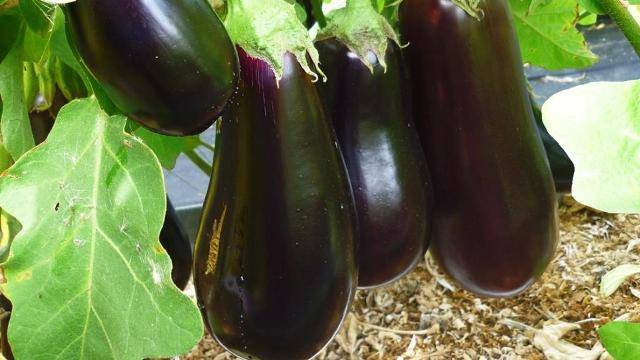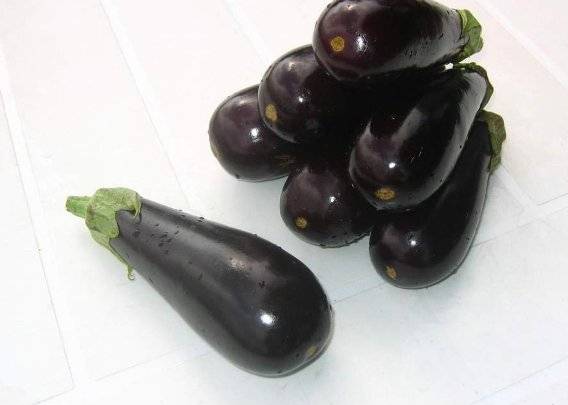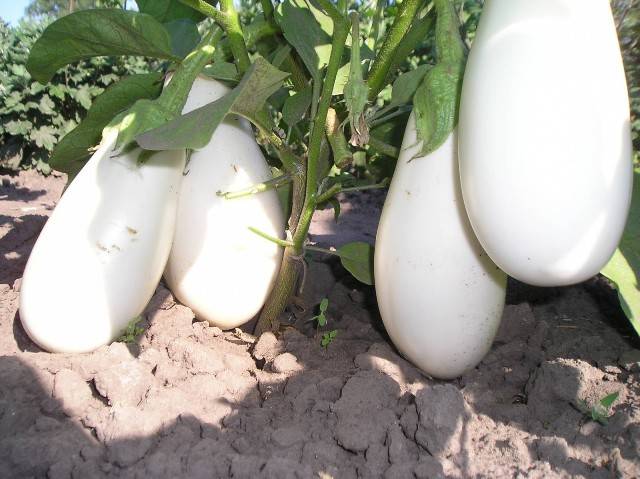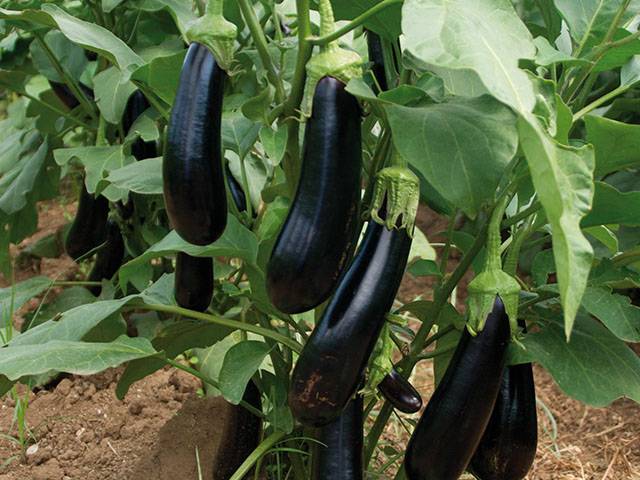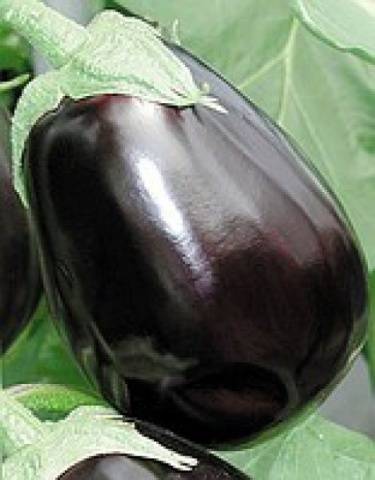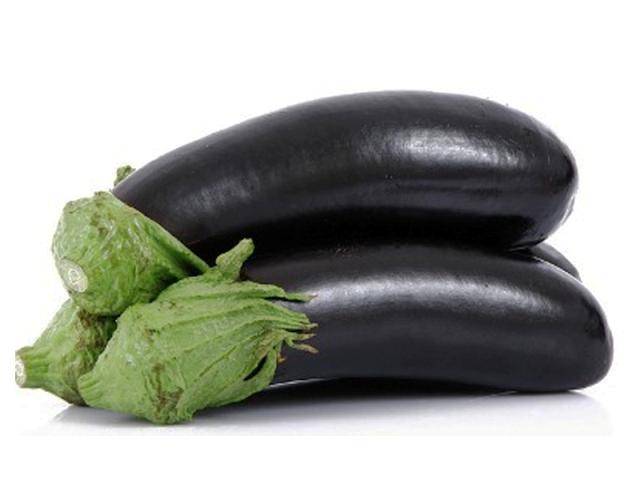Content
Today, on the shelves of agricultural markets and shops, you can see a large amount of planting material from Holland. Many novice gardeners ask themselves the question: "What are the advantages of Dutch eggplant varieties, and how suitable are their seeds for growing in our regions?"
Features of growing Dutch hybrids
When buying seeds from Holland, you need to understand that almost all planting material is well adapted to the climatic conditions of Central Russia, the Urals and Siberia.
All material is presented on the Russian markets in packs of 50, 100, 500 and 1000 pieces.
Growing hybrids of Dutch selection is practically no different from domestic varieties. However, when sowing planting material and transferring seedlings to the ground, consider a few nuances:
- Growers make sure that their planting material is the best, therefore all seeds are pre-disinfected... The only thing that will need to be done before planting is to lower the grains for a few minutes in a weak solution of potassium permanganate. Such a procedure is needed, rather, for prevention, since none of the sellers will tell you how long and in what conditions the seeds were stored after transportation.
- Please note that all eggplants have a weak root system... This also applies to Dutch hybrids. Transplanting seedlings into open ground should be extremely careful, since mechanical damage to the root can lead to an increase in the growing season and a decrease in yield.
- For the Northern regions it is necessary to carry out additional hardening of seedlingseven if you are transferring seedlings from home to a greenhouse. To do this, Dutch eggplant hybrids are taken outside for 10 days, gradually accustoming them to low temperatures. If the seedlings are grown in a greenhouse, harden by opening the doors for a short time.
- FROMtry to comply with the conditions for watering Dutch eggplants... It is especially important to monitor soil moisture in the first 5-8 days after transferring seedlings to a greenhouse or open ground.
- As a rule, each package contains recommendations from the manufacturer for care and feeding. Average, all Dutch varieties must be additionally fertilized at least 2-3 times a season.
These are just some of the basic rules for caring for eggplant varieties brought to us from Holland. If you are choosing a new hybrid, be sure to consult and find out exactly how it is grown.
When choosing planting material, pay attention to the growing season, the ripening period of the fruit and its yield. The taste qualities of Dutch breeding hybrids, as a rule, are always at their best - these are fruits with a thin skin and dense pulp, devoid of bitterness and having a small amount of seeds.
The best high-yielding hybrids
Anet F1 (from Bayer Nunhems)
One of the best high-yielding Dutch breeding hybrids. This is an early variety, the growing season of which begins 60-65 days after the first shoots.
Eggplants are slightly elongated, even cylindrical in shape.At the end of growth, the bush, densely covered with powerful foliage, can reach a height of 80-90 cm.
A distinctive feature of this Dutch eggplant hybrid is that it has a long fruiting period. If you sow seeds in the southern regions in mid-March, then by the beginning of June it will be possible to harvest the first fruits of eggplants. With proper care and regular watering, Anet's eggplant harvest can be "kept" until mid-September.
Hybrid Anet F1 it is considered to be cold-snap and resistant to such harmful insects as ticks. The plant is extremely rare, but even if this happens, it quickly and easily restores the vegetative mass. The skin is dark purple in color, the texture is firm and smooth. During the ripening period, the weight of one fruit can reach 400 grams.
The Dutch variety Anet has shown itself to be one of the best in long-term storage and transportation. The fruits practically do not lose their presentation and taste. The pulp is firm, without the characteristic bitterness. This is one of the hybrids presented by the manufacturer for the Russian market, which can be grown both in greenhouses and greenhouses, and in open ground conditions.
Bibo F1 (from Seminis)
Very beautiful snow-white hybrid from the Dutch selection. The variety belongs to early maturing, high-yielding eggplants.
Fruits are even conical in shape. The skin is firm, smooth and shiny. The weight Bibo F1 during the ripening period, it reaches 350-400 grams, and the length can reach 18-20 cm.At the same time, the diameter of each eggplant is from 6 to 9 cm.
The growing season of the plant begins 55-60 days after the first shoots. The plant is undersized, therefore it is allowed to plant seedlings at the rate of 20-25 thousand seeds per hectare. Possesses high productivity, resistant to viral and aggressive bacterial diseases.
Features of the Bibo variety - the plant is very fond of regular fertilizing with mineral fertilizers. With proper care and a favorable climate, it has a powerful root system, many nodes, and inflorescences pleases with abundant harvests.
Growing the Dutch hybrid Bibo F1 is possible in film greenhouses, heifers and in the open field.
So, the plant begins to bloom faster, and soon, even without a pick, the first ovaries appear on it.
Planting density - up to 25 thousand bushes of seedlings are planted per hectare. The original packaging from the manufacturer contains 1000 seeds. On the shelves of shops you can find packaging and 500 pcs. Such packaging is possible only under the conditions of a trade partnership with Seminis.
Destan F1 (from the manufacturer "Enza Zaden")
Another hybrid of Dutch selection, belonging to the early and high-yielding varieties. Destan has a strong root system, well-developed stem and leaf. Eggplants are small, but very tasty and practically have no bitterness. Due to the fact that Destan is recognized as a universal hybrid, the fruits are suitable for both culinary processing and canning. Eggplants are relatively small in size - the weight is from 150 to 200 grams, and the average length is 15 cm. The skin is dense, dark purple, smooth and shiny.
The plant tolerates low temperatures and high humidity well, however, it requires regular feeding with potash fertilizers. Eggplant has a fairly strong immunity and is not susceptible to viral and fungal diseases typical of open ground. Distinctive features of the Dutch hybrid of Destan eggplants - they do not grow well in heavy soil, and give high yields only in light soil.
If you notice that the stem of the plant is weak and thin, feed Destan with fertilizers with a high nitrogen content.
The Enza Zaden company produces planting material in packages not by the piece, but not by weight. The original sachet from the manufacturer contains 10 grams of seeds.
Clorinda F1 (from Seminis)
A Dutch breeding hybrid belonging to the mid-early periods of the beginning of fruiting. The first eggplant can be cut from the bush only 65-70 days after the seed has hatched. Fruits of an interesting pear-shaped, colored purple or lilac. It is the only eggplant variety that changes color depending on where it is planted. If the plant is in the shade outdoors, the skin will be slightly lighter.
The length of one eggplant during the ripening period can reach 20-25 cm, and the average weight can reach 1.2 kg. Clorinda is classified as a medium-yielding hybrids that give not a quantitative mass, but a qualitative one. Up to 10 kg of such giants can be removed from one bush during the full growing season. At home, this hybrid is used for canning sote and caviar of excellent taste. Eggplant contains no bitterness, and inside the fruit you may not find a single seed.
The plant is ideal for growing in greenhouses and greenhouses, adapted to low temperatures and viral diseases. Distinctive features in the growth process are a strong trunk, a powerful root system and a large number of inflorescences in one node. At the first shoots of seedlings, they do not dive, providing early and stable yields. Dutch hybrid eggplant clorinda from the Seminis company is stress-resistant, has high performance during storage and transportation. Planting density - up to 16 thousand plants per hectare. The original packaging from the manufacturer contains 1000 seeds.
Mileda F1 (from the "Syngenta" company)
Another early hybrid of eggplant for greenhouses and greenhouses, with a high yield and excellent taste. In the southern regions of Russia, this variety can be grown outdoors, but the seedlings in the early periods must be kept under a film cover.
Fruits in the period of full ripening reach a length of 15-17 cm, with an average weight of one eggplant - 200-250 grams. The skin of the fruit is dark purple, dense, and the pulp is rich and has no bitterness. The plant is well adapted to growing conditions in various climatic zones. With regular fertilizing with mineral fertilizers and watering, up to 8-10 kg of eggplants can be collected from one bush.
The planting density of the Dutch variety Milena is 16 thousand seedlings per hectare. The original packaging from the manufacturer can contain 100 and 1000 seeds.
Conclusion
When growing new varieties of eggplant from Dutch breeders, be sure to read the instructions and recommendations for growing. Many manufacturers describe in sufficient detail the procedure for sowing and caring for eggplants. Remember that these plants are not suitable for collecting seeds as planting material!
Watch an interesting video about the features of eggplant growing, diseases and pests.
